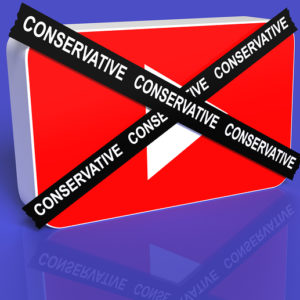Prager University, a website that makes short educational videos about history and culture from a conservative viewpoint, thinks YouTube is legally bound by the First Amendment and must treat all content on its platform equally.
In the past YouTube has restricted some of PragerU’s videos, calling them “dangerous” or “derogatory.” By PragerU’s count, YouTube has restricted more than 200 PragerU videos to date. The website sued, accusing YouTube of targeting their conservative content, but United States District Court Judge Lucy Koh dismissed the case.
The Electronic Frontier Foundation (EFF), a think tank that often defends privacy and free speech, sided with Google and YouTube in the case, explaining in an amicus brief that if giving the federal government the power to apply the First Amendment to privately owned online platforms, means government control of online speech.
PragerU appealed to the Ninth Circuit Court of Appeals, which heard oral arguments this week.
In his oral argument, PragerU lawyer Peter Obstler explained that even though YouTube is a private company and not a “state actor,” it calls itself a “public forum.”
“We think private parties absolutely have the right to own and operate video platforms and not be state actors,” Obstler told the court. “What makes this case different is the affirmative designations of the platform as a public forum.”
Obstler said much of his argument rests on the Supreme Court’s ruling in Marsh v. Alabama in which “SCOTUS said that the more a property owner opens up his or her property for public use and public function, the more that property becomes [susceptible] to constitutional scrutiny.”
Therefore, because YouTube considers itself to be a public forum, he argued, they should be subject to the First Amendment.
But appellate justices Jay Bybee and M. Margaret McKeown pushed back on his assertion, bringing up the recent Manhattan v. Halleck case, in which Supreme Court Justice Brett Kavanaugh wrote for the majority that just because a private company serves a public function, does not mean it is subject to the First Amendment, unless the federal government specifically designated it to serve a public function that is “traditionally and exclusively performed by the government.”
“It seems to me you can say you’re a public forum, but that doesn’t define your First Amendment status,” McKeown told Obstler. “[YouTube is] a public forum in a colloquial sense, so in that way they become a public forum for discussion, but does that necessarily mean they’re a First Amendment public forum? And you’re saying that by saying the words ‘public forum,’ they’re transformed.”
McKeown said PragerU should sue YouTube over a “contract claim, not a constitutional claim.”
Obstler said PragerU did sue YouTube for contract violation, a lawsuit he said is in process.
Bybee, who expressed sympathy for PragerU, agreed with McKeown.
“It seems deeply disturbing they’ve put your stuff in the restricted area,” Bybee said. “But that seems to suggest that Google isn’t abiding by its word, that they’ve somehow failed to live up to its promise. I’m not sure that creates a First Amendment issue.”
Brian Willen, the lawyer for Google, insisted that YouTube “is not discriminating against PragerU,” but both Bybee and McKeown pushed back on his claim.
“If that’s your argument, put them back on!” Bybee said.
But Willen — and Google — think that if PragerU doesn’t like YouTube’s content moderation policies, then PragerU should make its own video channel.
“[I think Justice Kavanaugh makes clear in Halleck] and goes to great pains to say that the expansion of state actor doctrine is a threat to private enterprise and to economic and personal liberty, so the remedy for this kind of situation is to use the rights that the First Amendment affords private individuals to go and speak for yourself,” Willen said.
Willen also added that anyone can see restricted videos by “logging on to a browser not in restricted mode.”
PragerU isn’t the only platform unhappy with YouTube’s content moderation policies. Both conservatives and liberals criticized YouTube’s recent decision to demonetize conservative commentator Steven Crowder’s videos, and LGBT commentators frequently criticize YouTube for demonetizing and restricting their videos as well.
Conservative and liberal free speech advocates worry that if the federal government steps in to decide content moderation disputes or regulate how online platforms moderate content, then this will set a precedent for the federal government to effectively control speech online.

